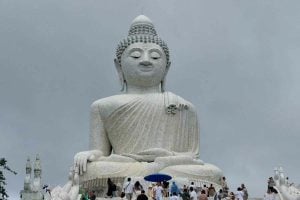Elephant’s back caves in after 25 years of tourist rides in Thailand
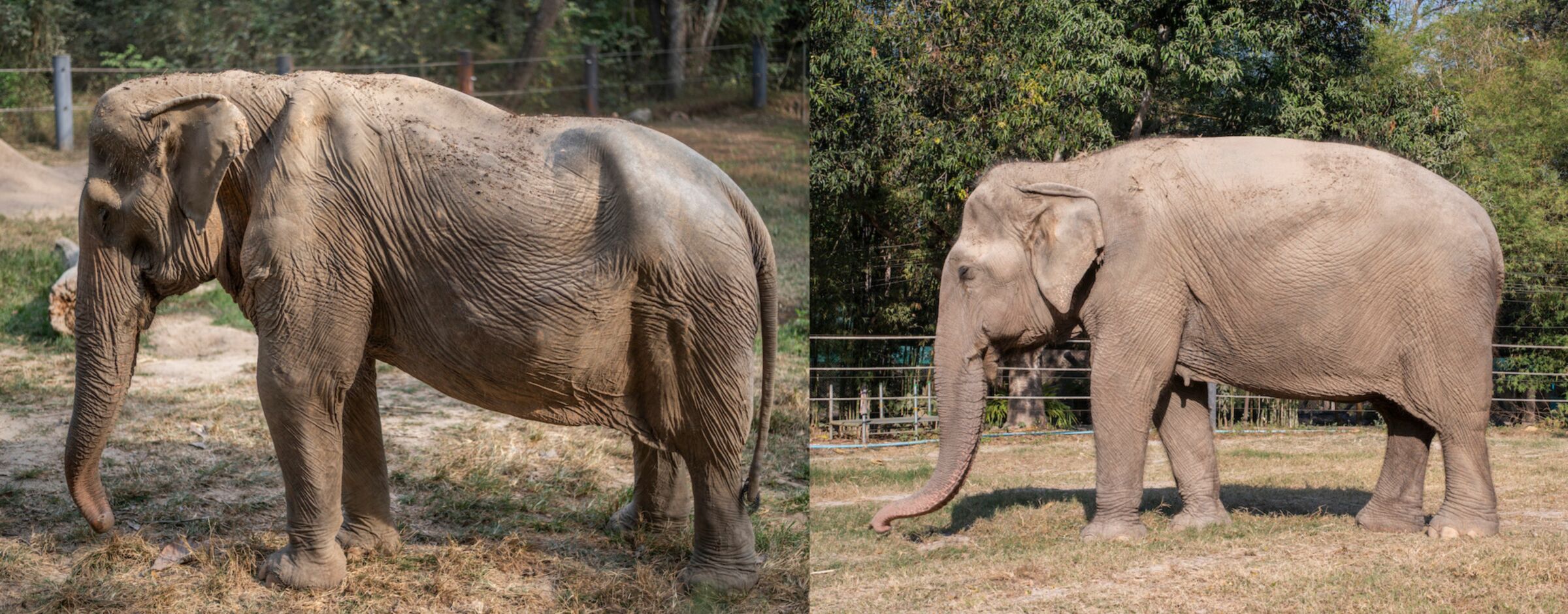
Pai Lin the elephant spent over 25 years in Thailand’s trekking industry, where she was forced to give rides to up to six tourists at a time. Now, her back is visibly deformed.
She now lives free at Thailand’s biggest wildlife rescue centre where she can roam chain-free and engage in natural behaviours.
Photographs show that Pai Lin’s spine, which should naturally be rounded and raised, is caved in and sunken from the heavy weight of repeated work.
These physical deformations are common in elephants used for tourist rides, according to Wildlife Friends Foundation Thailand (WFFT), who released the photos of their resident Pai Lin to help raise awareness of how elephants can suffer as part of the riding industry.
Elephants used for trekking often spend full days carrying the weight of their mahout (handler), groups of tourists, and a heavy howdah (seat).
This continuous pressure on their bodies can deteriorate the tissue and bones on their back, causing irreversible physical damage to their spines. Pai Lin’s back bears scars from old pressure points.
Tom Taylor, Project Director at WFFT, said…
“While elephants may be known for their strength and size, their backs are not naturally designed to carry weight, as their spines extend upwards.
“Constant pressure on their backbones from tourists can result in permanent physical damage, which can be seen in our resident Pai Lin.”
Described as the grandma of WFFT’s elephant refuge, lucky Pai Lin, now around 71 years old, was rescued by the sanctuary back in 2007.
WFFT looks after Pai Lin along with 23 other elephants, who live happily in the sanctuary’s large elephant enclosures, which are up to 44 acres each and have natural trees, lakes and grazing areas. The rescue elephants each eat around 300 kilograms of food every day.
The sanctuary is also home to over 700 other rescue animals, including primates, exotic birds, and tigers.
“Most of the rescued elephants at WFFT have experienced decades of abuse… While we could never comprehend the trauma these animals have experienced in the past, at least they can now live the rest of their lives in peace at the sanctuary.
“We hope that these photos encourage tourists to do their research and support only ethical and sustainable elephant centres while avoiding establishments that offer riding or other exploitative practices.”
Today it’s estimated there are around 3,000 domestic elephants in Thailand – most of them work in the tourism or logging industries. Meanwhile, in the wild, there are only around 2,200 individuals left, who live in open grasslands and dense rainforests spread over the country.
To support WFFT’s work and the lifelong care for Pai Lin, visit www.wfft.org/donate.
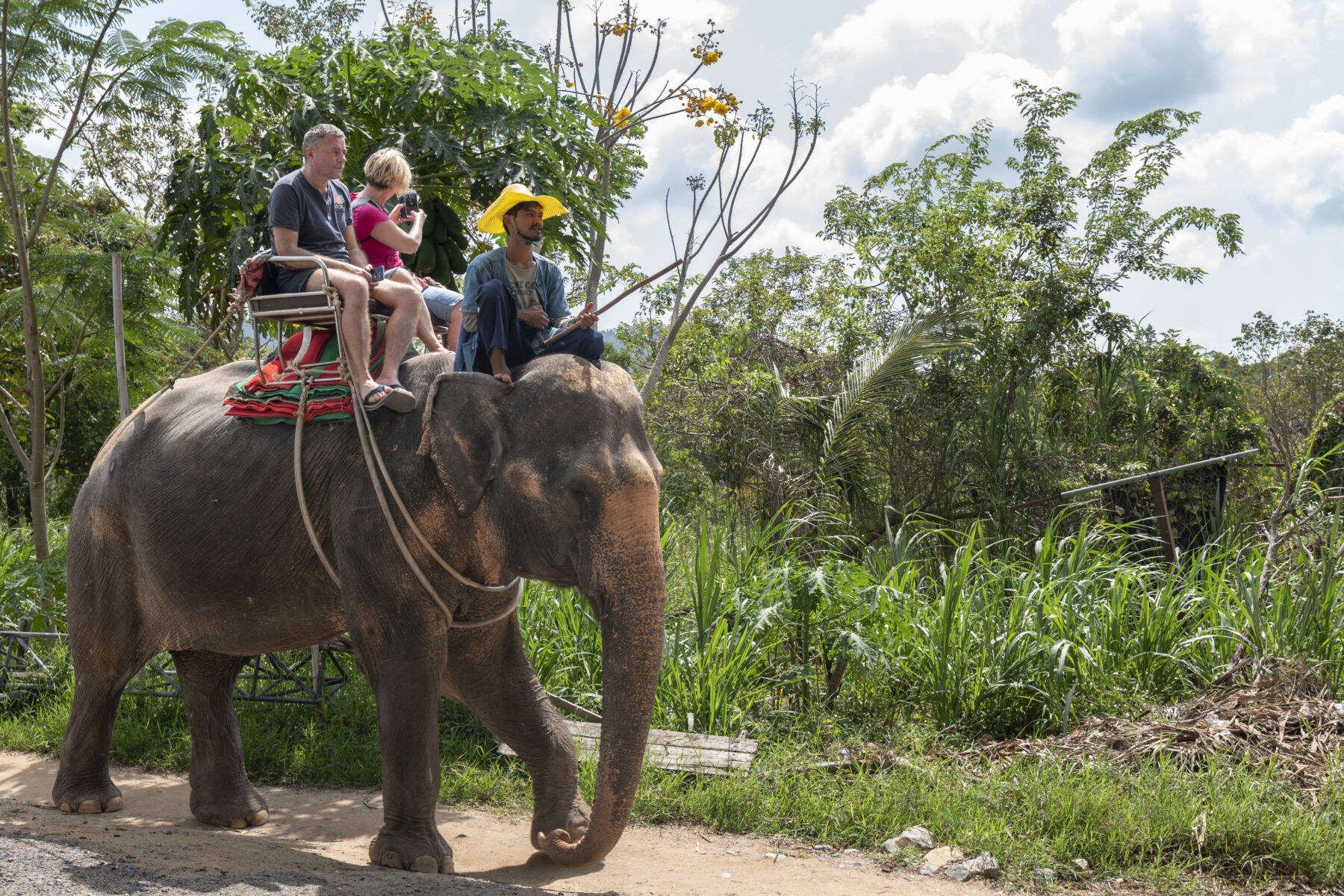
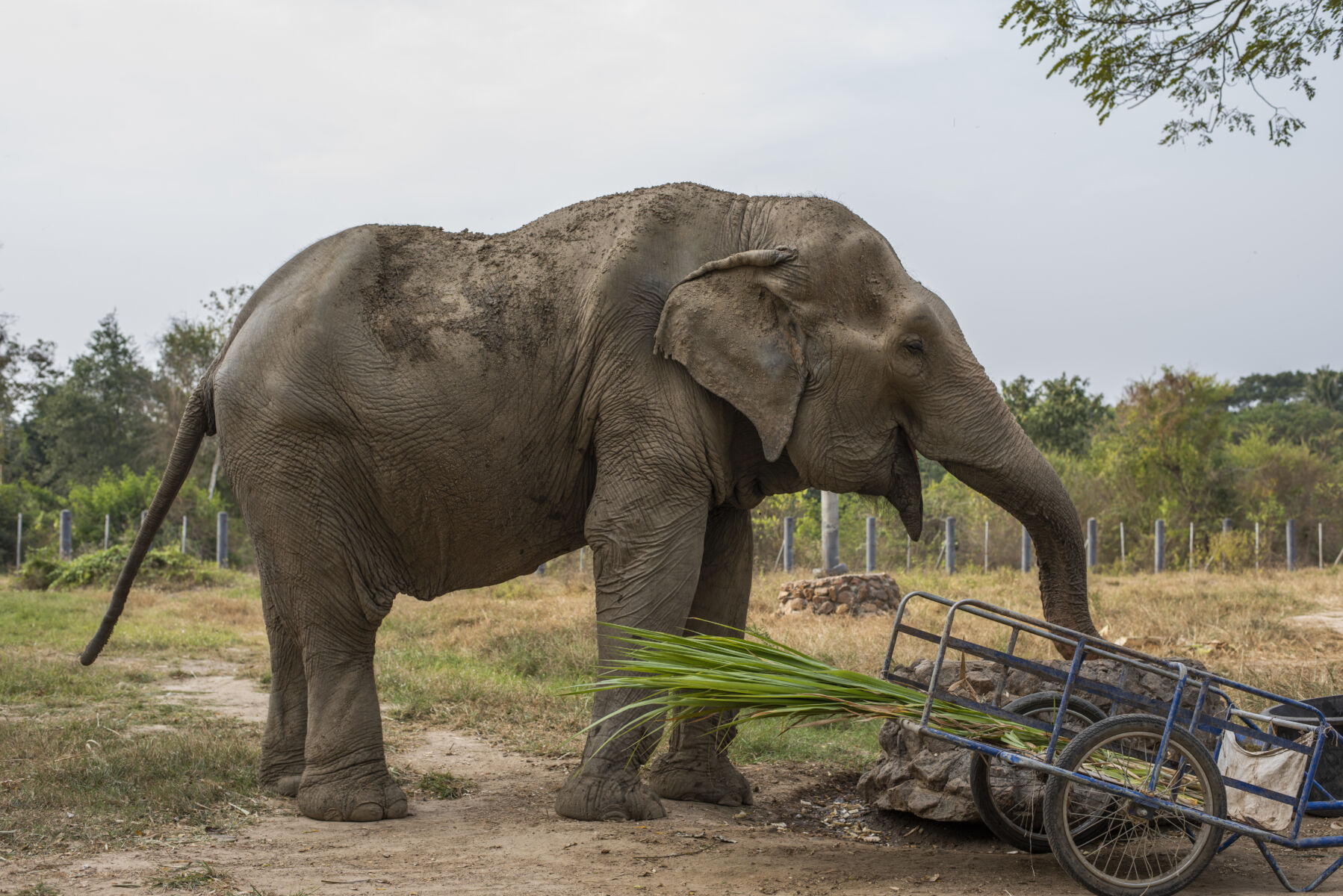
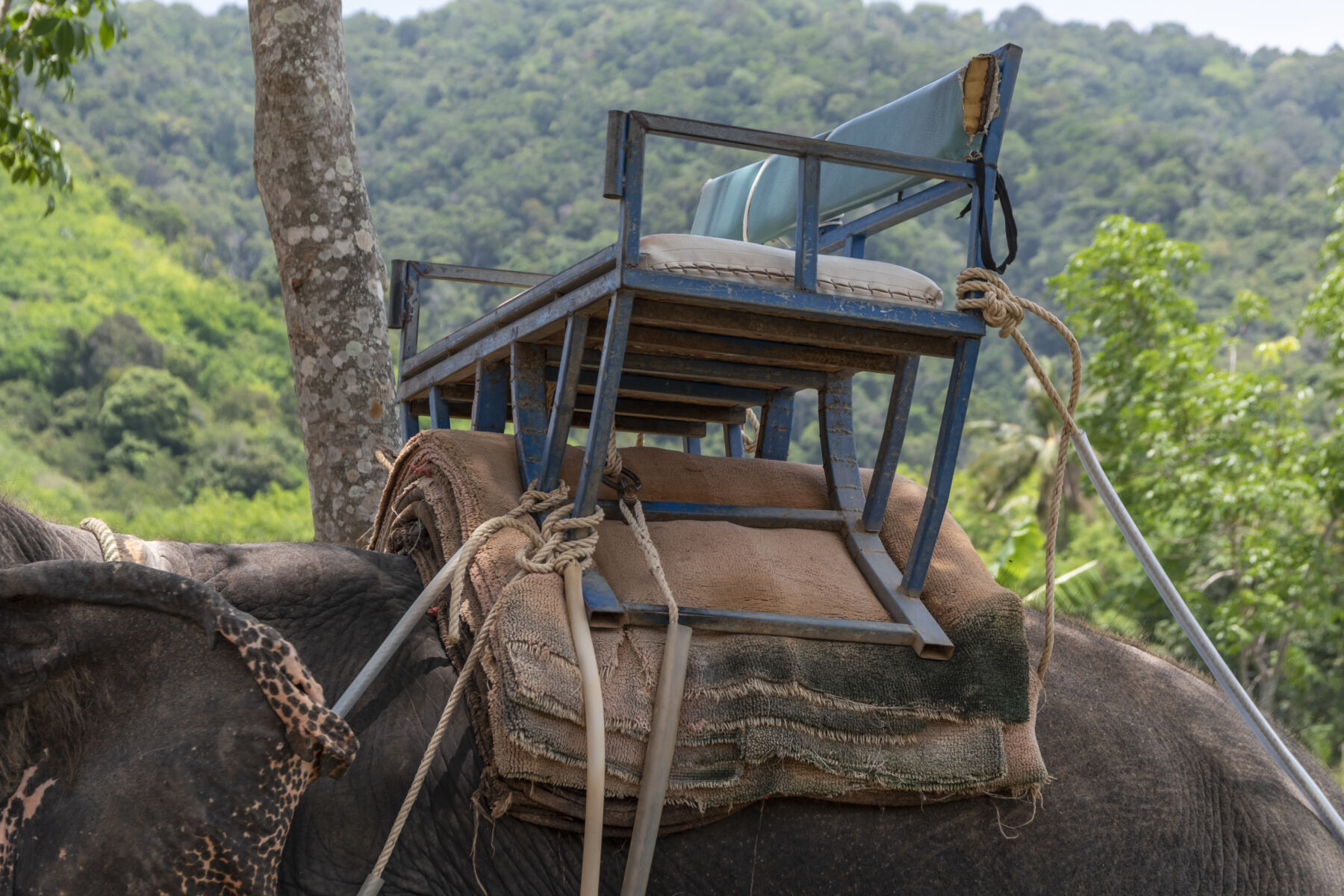
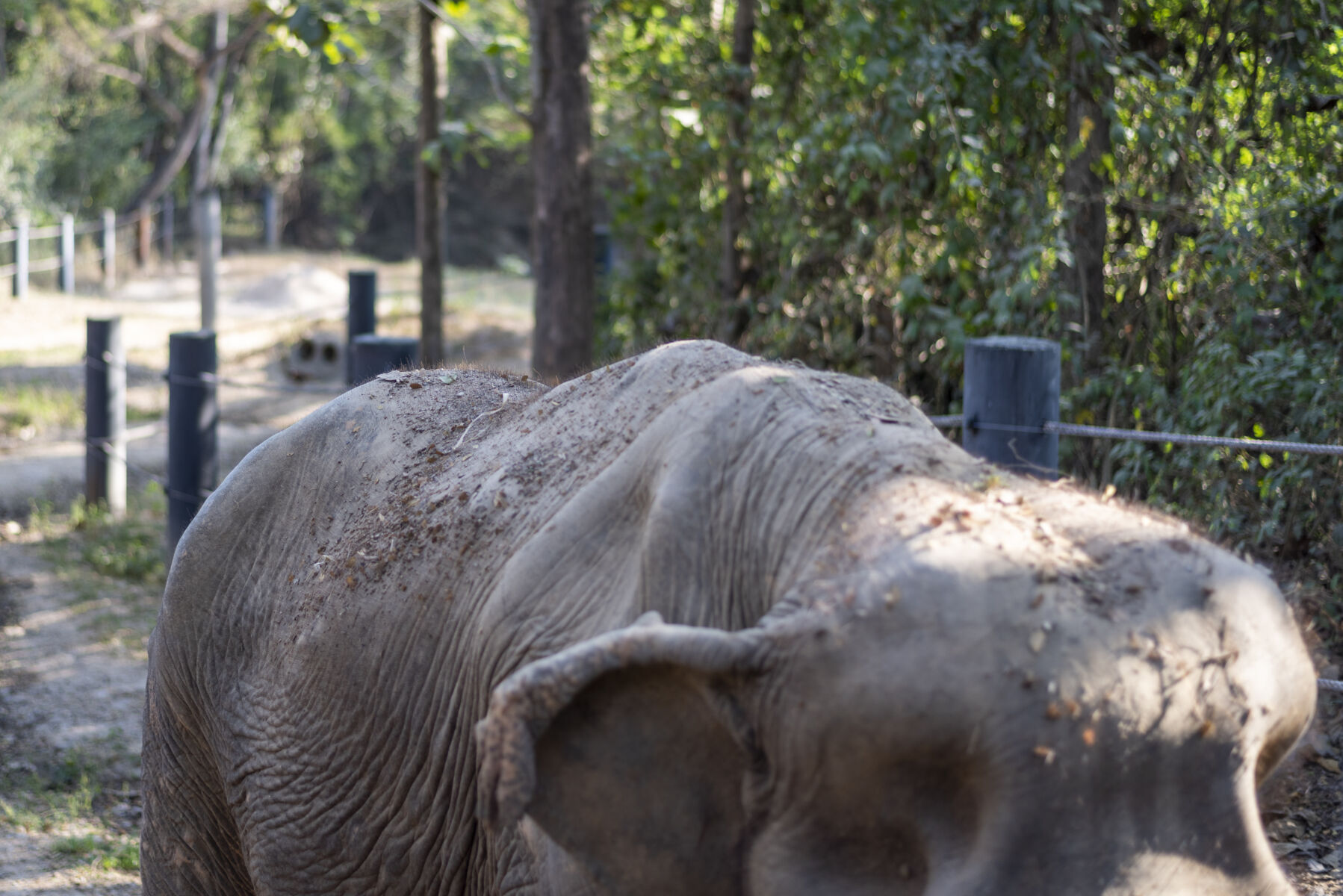
Latest Thailand News
Follow The Thaiger on Google News:






